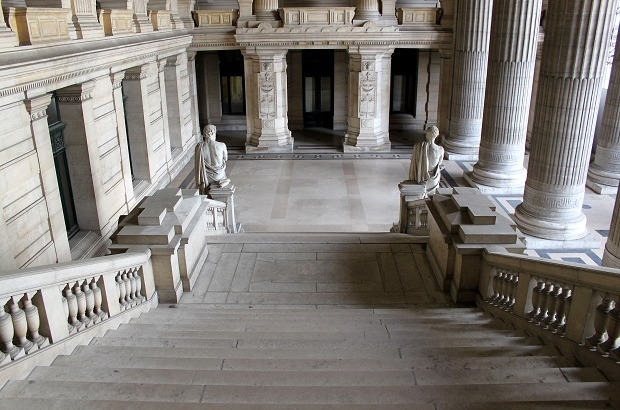- Daily & Weekly newsletters
- Buy & download The Bulletin
- Comment on our articles
Major operation under way to make Belgian justice system more efficient and productive
A major operation with the Belgian justice system aims to make it more efficient and productive overall.
The need to tighten up operations stems from a lack of resources, RTBF reports.
Courts and tribunals say they are under pressure, and citizens want a justice system that is more modern and closer to their needs.
“We are in a period in which justice wants to dust itself off,” explained Fabienne Bayard, president of the College of Courts and Tribunals which is leading the initiative.
Beginning this week, the country’s courts and tribunals are measuring their workload in order to collect data on efficiency. Magistrates’ activity will be monitored in real time using an application on their phone or computer.
The lack of human and material resources in the justice system is hardly a new dilemma. In 2016, Jean de Codt, the first president of the Belgian Court of Cassation, denounced a weakening of the justice system.
According to de Codt, Belgium was no longer a state governed by the rule of law but "a rogue state", a term that Bayard called "deliberately provocative".
“To say that it was totally false would not be accurate either,” Bayard added.
At the time, the government was implementing budget restructuring measures for all public services, including justice.
“It deliberately decided to reduce the legal frameworks by 10% in a linear way - the figures that give each court the number of judges and clerks to which it is entitled,” Bayard explained.
“The government did this without checking where there would be possible damage. Purely and simply, it decided not to respect the law. For a magistrate, this was a scandal.”
It was in this context that the judiciary decided to demonstrate what it really needed in terms of resources: “Are the frameworks set in 1967 still adequate? We don't know and that's why we're going to measure this working time.”
Helping the College of Courts and Tribunals with such a large operation is a company that proposes to measure working time via an application, available on smartphones or laptops.
“For one week, 14 times a day, you receive a notification asking you two questions: Are you working (yes or no)? Are you working on a file, and if so, what kind? If you are busy with another task necessary for the exercise of your profession, you can also indicate this,” explained Bayard.
This self-reporting is done on a voluntary basis, “but there is a very high participation rate of 69% among all magistrates and court clerks. It is a tried and tested method. The firm says it is capable of detecting inconsistencies.”
The objective is to put together “as accurate a picture as possible of the working time of magistrates and court clerks in the country in order to be able to negotiate the appropriate budgets for the functioning of the courts and tribunals”.
Another step being taken immediately within the courts is the removal of a lawyer’s right to plead “indefinitely”, which has already been met with some criticism.
Judges can now tell lawyers in advance how much time they have to present their case, according to a ruling by the Court of Cassation.
That ruling dates from 14 March and comes after a lawyer appealed to the Court of Cassation because, during a hearing in a Ghent court for the extension of a suspect's pre-trial detention, the three judges had only given him 10 minutes to plead a case.
But the Court of Cassation said the lawyer could not demonstrate that the limit imposed on his plea had affected his right to defence. The court also stated that there is no legislation that grants a lawyer the right to plead for as long as he or she wishes.
“In a state governed by the rule of law, the right to a defence is central,” a spokesperson for the Flemish Bar Association said in criticism of the ruling.
“Justice must show a human face, and this is certainly the case when it comes to the freedom of a person. Rushing a case in this way, or even giving the impression of doing so, is not the image that justice wants to give.”


















